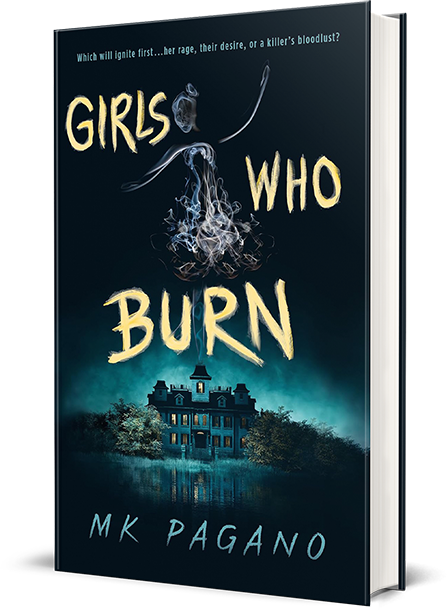Learning from the Masters: On Varying Sentence Length

What would you say the goal of writing a novel is?
This could be a long discussion. But I’d argue that one of the primary goals of telling someone a story via printed words is to get them to forget that they’re reading a story at all.
A good book should cast a spell on the reader. They start off reading words on a page, but pretty soon they’re so caught up in the world you’ve created, they forget that it’s a fictional world at all.
Creating such a story takes a certain amount of talent and practice and work. One of the best way to do this is to make your writing tight enough. And one of the best way to do that is:
Varying your sentence length.
I read a writing submission recently that went something like this:
I opened the door. I jumped out of the car. I saw him standing there. He looked angry. I ran up to him. I threw my arms around him. I pulled back to look at him. His expression hadn’t changed.
Do you see why this paragraph doesn’t work? Each sentence is roughly the same length. It’s very staccato–even beats, over and over, more like a poem than prose. It causes you to notice it, which in turn distracts you from the story.
Equally bad is:
I opened the door, jumped out of the car, and saw him standing there with an angry expression on his face. I ran up to him, threw my arms around him, then pulled back so I could look him directly in the face, but his expression hadn’t changed.
Here the sentences are also the same length, just longer. It’s less noticeable than the short sentences, but if this paragraph were to continue in this way, it would get very tedious.
Variety is key. Short sentences followed by long sentences followed by medium sentences. And so on and so forth.
I’m going to quote a passage from one of my favorite books of all time, written by my favorite writer of all time.
I became a policeman because I wanted to be a Murder detective. My time in training and in uniform–Templemore College, endless complicated physical exercises, wandering around small towns in a cartoonish Day-Glo jacket, investigating which of the three unintelligible local delinquents had broken Mrs. McSweeney’s garden-shed window–all felt like an embarrassing daze scripted by Ionesco, a trial by tedium I had to endure, for some dislocated bureaucratic reason, in order to earn my actual job. I never think about those years and cannot remember them with any clarity. I made no friends; to me my detachment from the whole process felt involuntary and inevitable, like the side effect of a sedative drug, but the other cops read it as deliberate superciliousness, a studied sneer at their solid rural backgrounds and solid rural ambitions. Possibly it was. I recently found a diary entry from college in which I described my classmates as “a herd of mouth-breathing fucktard yokels who wade around in a miasma of cliché so thick you can practically smell the bacon and cabbage and cow shite and altar candles.” Even assuming I was having a bad day, I think this shows a certain lack of respect for cultural differences.
Do you see?
Short sentence–very long sentence–short sentence–long sentence with a short sentence embedded via semi-colon–very short sentence–long sentence–medium sentence–
It casts a spell on you. You forget you’re reading words on a page, and instead are sucked into the story.
(Also isn’t Tana French just the greatest writer? I could gush for hours about her work–but I won’t right now).
Of course, this all depends on the purpose of your paragraph or scene–for example, it’s perfectly acceptable to have a passage of dialogue with all short sentences. Same could go for an action scene. And if you’re in description mode, it’s also acceptable to have several longer sentences. However, I’d argue that even in these scenes, adding in some variety in length will make your passage, and thereby your book, flow better.
How do you know if your sentences flow? I’ve said this before and I’ll say it again: you need to read, widely and often, in order to become a good writer. I can pick out awkward paragraphs from a mile away because I’ve been reading good books (and bad books) my entire life. It’s like having a fine-tuned musical ear (something I do not have)–maybe not everyone will be able to tell if you’re playing off-key, but those readers (and writers!) who are familiar with what it should sound like, definitely will.


I loved your post. And it is like having a finely tuned writing ear and to have a finely tuned ear reading is definitely a necessity.
[…] reader out of the present moment. And you don’t want that. There’s also the matter of sentence length. Long descriptions naturally lend themselves to long sentences, which becomes tedious. Vary your […]
[…] On Why You Need Varying Sentence Lengths […]